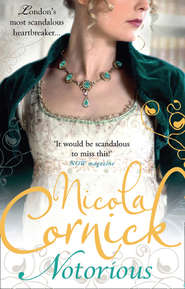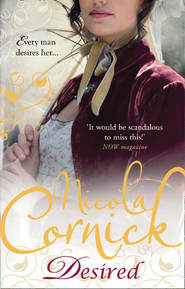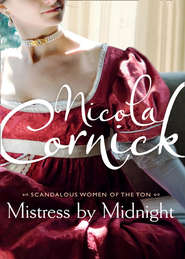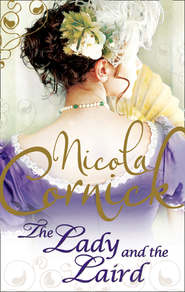По всем вопросам обращайтесь на: info@litportal.ru
(©) 2003-2025.
✖
The Woman In The Lake: Can she escape the shadows of the past?
Автор
Год написания книги
2019
Настройки чтения
Размер шрифта
Высота строк
Поля
You would think he was concerned for her welfare but I knew better. He wanted to know who she saw, where she went, what she did. As I said, I was his spy.
A half hour later, the door banged behind him as he left for Paris and a gloomy quiet settled on the house. I crept upstairs to the dressing room, anxious not to disturb my lady, since she was always in a bad mood early in the morning.
The door to her bedroom was ajar. I could hear her snoring and was relieved that she slept. I had imagined that she would lie awake all night in pain, tormented by the terrible argument and the violence that had followed. But perhaps she was sick and exhausted. I should feel more sympathy for her. Yet I did not. Many men enforced their will through their fists. It was a fact of life. Besides, her ladyship provoked her husband with her flirtations. I was her maid so I knew all about the late night trysts and the whispered promises, the dallying in the dark walks at Vauxhall. What did she expect in return? Not many men happily accepted that what was sauce for the goose was also sauce for the gander. It was a matter of pride to them, a matter of reputation.
Pale light from a crack between the curtains glimmered on the material of the golden gown. It lay across the back of one of the chairs where Lord G had thrown it when her ladyship had declined to wear it. All I had to do was creep into the room and take it before she woke. I could destroy it as Lord G had demanded and when – if – she asked me, I would pretend I knew nothing of it.
‘Constance?’
Too late. She had woken. It was her ‘pity me’ voice.
I pushed open the door and went in.
‘Madam?’
‘Call Dr Baird. I need him. At once.’
My heart beat a little faster. I could not help myself. At one time I had imagined myself marrying Dr Baird. Why should I not? He was handsome and clever, and I was an educated woman, suitable to be the wife of a professional man even if I was only a lady’s maid. He would smile on me sometimes. We would exchange a few words. That was all it took for me to fall in love with him and I allowed myself to dream that we might be together.
One night I did more than merely dream. I called by his lodgings to collect some medicine for my lady. I should have sent the footman, of course, but she insisted on discretion and that I should be her messenger. So I went.
He seemed quite different that night. He was in his shirtsleeves, his neck cloth undone, a bottle of red wine on the table by his chair and a fire in the grate. I joined him in a glass and sat with him in the warmth and we talked, and when he kissed me and drew me down to lie with him before the fire I had no thought of resisting. I was full of joy.
But I soon saw that what was, for me, infinitely precious, was to him… well, I know not what. Nothing out of the ordinary, perhaps, a diversion, or even a mistake.
It did not take me long to realise that Dr Baird was even more ambitious than I. He would never again look my way, other than to ask me to pass him a bowl of water with which to tend to Lady Gerard. Knowing that did not stop me loving him, of course, but it did curdle that loving into bitterness.
‘Constance. You’re dreaming.’ Her voice snapped sharp enough for a sick woman. And I automatically dropped a curtsey.
‘Your pardon, my lady.’ I was so adept at being meek.
I went to find a footman to run the errand. When I returned, my lady was reclining on her pillows so that the light accentuated her pallor and the bruising to her eye and cheek. She was a talented artist and could never resist a pose. I turned away in disgust.
‘Constance, fetch me my yellow peignoir.’ She was looking around, fussing. ‘And tidy the room. Not that—’ She spoke sharply as I reached over to grab the golden gown from the back of the chair. ‘Leave it. Fetch me tea. I don’t want toast. I cannot eat.’
‘My lady.’ My mother would have been proud of my obedience. She had told me from the first what an honour it was to have been chosen to wait upon Lady Gerard. Poor Mother. She understood nothing: nothing of the role Lord G had selected for me, nothing of his hold over our family and nothing of the world she inhabited or the price at which it had been bought.
Dr Baird came, hasty as you like. He had eyes for no one but my lady, of course. Even when she had been treated so cruelly she was like a rose, all pink and amber, delicate, precious. He was dazzled. She was helpless. I was so sick with jealousy I could not look at either of them.
I showed the good doctor out after he had made his foolish suggestion to elope with her and she had turned him down. ‘He is smitten with you,’ I said. I wanted to know her feelings even though I knew I should leave well alone.
‘You have too soft a heart,’ she said. ‘What would you have me do? Accept his attentions?’
She was so callous. It mattered nothing to her that she had enchanted him. She took it as her due and she felt nothing in return.
‘He only wanted to help you,’ I said.
‘There is always a price.’ She sounded weary. She took a sip of tea but the pot was cold by now.
‘I’ll call for more.’ I was glad of the distraction, glad to be able to subdue my unruly feelings with practical matters. I rang the bell then noticed that she was looking at the golden gown. I remembered again Lord Gerard’s instructions and my heart leapt with anxiety.
‘I’ll take it away, milady.’ I said. ‘You won’t be wanting to look at it again, I daresay, after what happened.’
She gave me a look. ‘By all means,’ she said haughtily. Then, just as I thought the deed was so easily accomplished: ‘Wrap it up and put it away. I may want to have it altered someday.’
I spoke before I thought. ‘You wouldn’t wear it, surely? Not now!’
She raised her brows and looked down her aristocratic nose at me. ‘Who knows?’ she said. ‘Perhaps I may, one day.’
‘Very well, milady,’ I said. In truth I was vexed almost beyond bearing. There was no knowing when she might want to see it again. She might choose to have it altered tomorrow or she might never ask for it again. It would be typical of her contrariness that if I destroyed it as Lord Gerard had ordered, she would demand to wear it the very next day, and then how would I explain myself?
I was about to take the gown and fold it away whilst I thought about what to do, but she snatched it up and clutched it to her bosom as though it had suddenly become very precious to her. She closed her eyes for a moment and drew in a deep breath. When she opened them again her face was flushed and animated and her eyes bright as stars. It was quite a transformation.
‘Pack my bags, Constance,’ she said. ‘Tomorrow we go to Lydiard.’
I caught my breath. Lydiard Park, one of Lord Gerard’s many estates, was close by my family home in Swindon. In the two years that I had been serving my lady we had never gone there.
I must have been gaping like a simpleton for she gave me a smile. ‘You will be pleased to see your parents again, I imagine.’
Pleased? Pleased to return to Swindon, where my father had sold me into Lord Gerard’s service, pleased to enter once more into that web of deception and criminality? It was not the word that I would have chosen. What pleased me was to be as far from Swindon and the smuggling gangs as I could possibly be.
When I did not reply, Lady Gerard turned away. She was not particularly interested in my emotions, being far more concerned with her own.
‘Dr Baird was correct,’ she said. ‘Fresh country air and a change of scene will be most restorative.’
‘Yes, milady. Do the childen accompany us?’ Lady Gerard looked astonished. ‘Good God, no. They stay here in the nursery.’
I started to run through in my mind all the things that we would need to take. Suddenly there was so much to do. My lady was at her querulous worst, sending me running hither and thither on endless errands, demanding that I pack a dozen gowns and then removing them immediately from the portmanteau in favour of a different style, despatching me to the perfumer, the haberdasher and the bookseller. By evening I was hot and sweaty and exhausted whilst my lady turned the house on its head in her haste to be gone.
‘You will bring the golden gown with us,’ she ordered at one point, thrusting it into my hands. I could not see that she would have opportunity to wear the wretched thing but I had more pressing matters to think of so I folded it small and forced it into an empty corner of the last box. Perhaps when we were in the country she might forget about it and I could destroy it as Lord G had demanded.
Eventually, when her ladyship had driven us all, coachman, maids, footmen and the cook to utter distraction with her orders for the following day, I had the idea of giving her some of the dose Dr Baird had left to alleviate the pain. She had not asked for it, but it was laudanum and it made her sleep.
I dragged myself wearily up the wooden stairs to my room under the eaves. It was stifling hot in there as evening fell over the city and though I opened the tiny window that was too high up to give me a view, no air stirred. First I packed my own small portmanteau and then I sat down at the bare wooden table and drew from the drawer paper, quill and ink.
‘My lord,’ I wrote, ‘I write to acquaint you with Lady Gerard’s business.’ The letter would not reach him for ten days or more, I knew, but he expected me to provide a regular report. ‘This morning she sent for Dr Baird who recommended that she spend some time in the country.’ I paused, biting the end of the quill, trying to decide whether to mention the doctor’s indiscretion, tantamount to a declaration. It would be malicious of me to write of it when Lady Gerard had very properly declined his offer but the sour resentment I felt towards them both had my pen scurrying across the page.
‘The doctor offered Lady Gerard his personal assistance.’ I underlined the last two words. That would be sufficient to have Dr Baird dismissed, which gave me great satisfaction.
‘We travel to Lydiard House in the morning,’ I finished.
I paused again, looking at the candle flame as it burned low. Should I lie or should I omit?
‘I have completed the other commission you required of me,’ I wrote. ‘The gown has been destroyed.’
Chapter 4
Fenella











